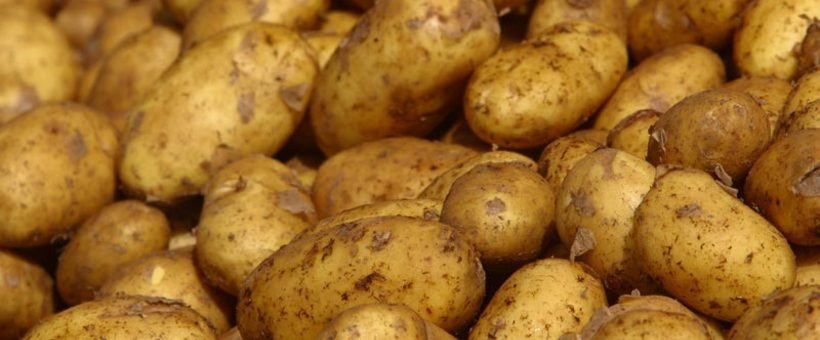
By George Munene
Meru farmers are making premium earnings from the difference in their rainy season, which means they can deliver potatoes when they are most scarce and prices are highest.
Whilst in most parts of the country long rains run from April to late May those of Kibirichia, Meru County last from October to December. This, coupled with proper storage systems, enables potato farmers from the region to produce for the market at times when produce is scarce and prices are higher.
For Alfred Mweti, a potato farmer in the region, the average cost of production for an acre piece of land runs him about Sh20,000. Planting high producing potato varieties such as Shangi and Asante, with proper agronomic practices, an acre yields 110-80 50kg bags that can be sold at a median price of Sh2500.
Mweti grows his potatoes over two seasons: the October to December long rains and March to May shorter rains. Most potatoes produced over December usually sell at a premium as most parts of the country have enough rain to produce bulk quantities. Depending on the prevailing market prices, the potatoes are immediately sold or stored to be sold when market prices are favorable. “It’s a waiting game; with good storage, potatoes go for up to four months without going bad— most small-scale farmers however lack the facilities for proper storage for such a long time. Once you wait out the initial price deprecation caused by oversupply you can sell your produce in April or May when a bag goes for up to Sh3000,” explains Alfred.
Related News: Institute pioneers banana paper use in managing potato cyst nematodes
Related News: FarmBiz TV:Yellow-fleshed sweet potato earns farmer Sh1500 more
Storage is done in a floored, well-ventilated room. Some spoilage is to be expected though; about one out of every 100 potatoes will go bad. The storage area should have a roof or the potatoes covered, to avoid inadvertently baking them. When stored past five months potatoes become scrawny and flaccid depreciating their value.
To prepare an acre for planting, Mweti hires a day’s labour force of 5 people, each paid Sh400. An acre of potatoes consumes three bags of DAP fertiliser at planting, each 50kg bag costing Sh3000-2500.
Plowing is again done after a month for weeding when the potatoes begin to sprout.
Earthling up is done depending on the growth rate of your potatoes –usually after two to three weeks and helps to increase the surface area available for tuber expansion. At this point, top dressing is done with CAN, NPK or Urea fertiliser. A bag of top dressing fertilisers costs Sh2500 and three bags are needed to cater to an acre.
To combat sucking and chewing pests—mainly caterpillars— especially over the first one to two months when foliage first develops Twiga Chemical’s Duduthrin is used.
Related News: NYS Tumaini base producing clean potato seeds for farmers using new technology
Related News: Stem cutting potato seed production method reduces pests and diseases by half
The main threat to potatoes grown in the region is late blight. If uncontrolled, it greatly diminishes output and can wipe out entire silos of stored potatoes. This is controlled by weekly spraying with fungicides such as Dethane and Ridomil once leaf growth is observed, continuing until flowers are formed and shed. One kilogram of Dethane costs Sh950 with two tablespoon fulls suited for one pump.
Foliars, which are liquid fertilisers, are applied to foliage and are compatible able to be mixed in with pesticides. They can be sprayed one to three times to enhance growth. Depending on the stage of growth— which determines the number and size of leaves three to five 20 liter pumps can be used for an acre.
Harvesting is done after 70-120 days with every casual laborer paid Sh200 for every 50-kilogram bag harvested. Potatoes are graded from 1-4. Grade one is sold to consumers; two and three which can be clasped in a palm are used as the next season’s seedlings or sold to other farmers.